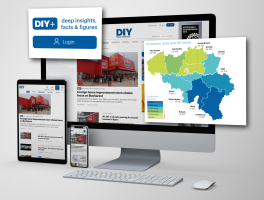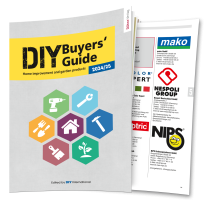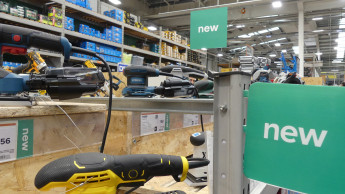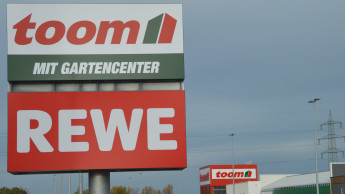It makes sense to have a website, even for smaller retailers (single units or chains). The following article suggests what must be taken into consideration when designing a site. The text is based on interviews with successful US online retailers and website designers, and considerable internet research as well
Whether you already have a website or are just beginning to consider one, you should first determine the strategy behind it. Certainly, generating sales should be a part of it, but only a part, not the sole reason for it. Your website should be a reflection of your business – its philosophy, its style, its merchandise offerings, its services and, most importantly, its role and relationship to customers in your community.
Standing out in a crowd
Figures from the USA prove that it can be worth their while for DIY retailers to operate a website. The trade magazine Internet Retailer recently reported that hardware and home improvement is the web's fastest growing category, increasing at an annual rate of 50 per cent. From 2004 to 2005, sales grew from US $ 48.2 bn to US $ 70.5 bn. It is estimated that Home Depot generated sales of US $ 279.7 mio off its website, and Lowe’s achieved US $ 148.8 mio. But many smaller retailers insist that web sales are a bonus and shouldn’t be one’s primary measurement.
Virgil Cox, a retailer in Houston, Texas, sees his site serving a key function by providing information and convenience for current and potential customers. They can find out what he stocks, if the products they want are in stock, what his prices are – all of which ensure that during their follow-up visit to his store they will get what they want and not be disappointed with out-of-stocks.www.coxhardware.com
Dave Petersen, who operates a lumberyard in Massachusetts, says that with more useful information available on one’s website, and/or links to helpful information, you will experience more "pre-educated" consumers walking into your store. This can result in less time explaining the product's features and benefits, since they have reviewed and researched online.www.chacelumber.com
Basic information about the store obviously should include location, phone and/or fax numbers, hours, as well as information about new items being added to inventory, or items currently being promoted.
Once developed, a website becomes a never-ending advertising method for a retailer, though it does require regular maintenance to be kept up-to-date and valuable for site visitors, which of course involves a certain amount of cost.
For smaller retailers the web also provides an opportunity to promote niche departments, which work in the real world as a competitive offset to big-box stores. John Fix of Cornell’s True Value Hardware in Eastchester, NY, stresses some niche categories, including ”As advertised on TV” items on his website. These too are unusual items and are, in many cases, somewhat pre-sold from their TV exposure, so finding them locally, without shipping costs, generates sales for his store.www.cornells.com
Website musts
Here are some key things to think about in establishing a new website or improving your existing site:
Make sure it includes a search engine, with which viewers can type in the names of items about which they are seeking information.
Keep the design relatively simple so it is easy for site visitors to navigate.
Emphasise your strengths – extensive inventory, hard-to-find items, niche departments, excellent personal service, etc.
If you don’t want to try generating mail order sales, at least use the site to generate in-store sales by featuring specials, unusual items, seasonal categories.
In order for your site to be found easily on major search engines like Google, Yahoo, etc., you need to be sure that key words are included in your site – hardware, tools, plumbing, electrical, etc.
Use the site to establish your firm as a hardlines “expert”
Collect emails and addresses from in-store customers, especially charge customers.
If possible, develop an email newsletter reporting on local events and activities, offering how-to tips, etc. It doesn’t have to be fancy, just filled with useful information.
Search for other sites to link your site to and ask for a reciprocal link, if possible; which will rank you higher on search engines and be a good service for site visitors.
Develop an email catalogue and send it out to all collected email addresses. You can also buy email lists targeted to your own area.
List your web address everywhere – in ads, Yellow Pages, on cards, letterheads, etc.
Other sites to check out
Here are some more retailer sites to check out, which give you many different “looks” as well as variations of content.
www.bedbathandbeyond.comwww.bestbuy.comwww.crateandbarrel.comwww.homedepot.comwww.lowes.comwww.walmart.comwww.target.comwww.homeandbeyond.comwww.restorationhardware.comwww.sharperimage.comwww.hammacher.comwww.diy.com

 Menü
Menü
















